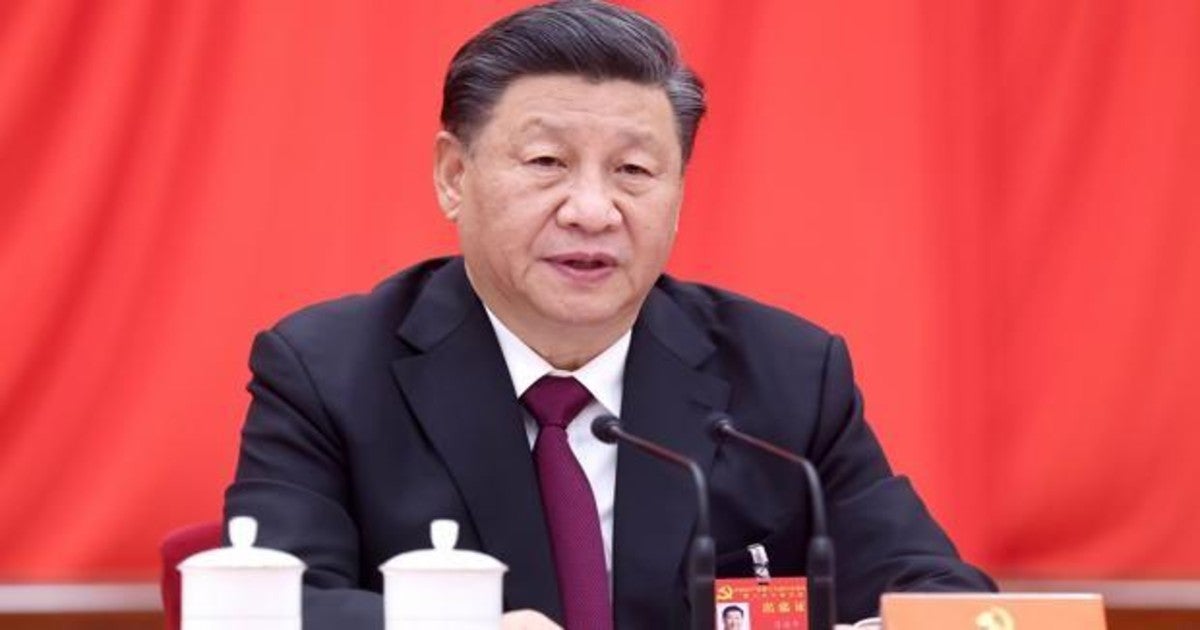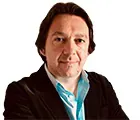Xi Jinping, China’s “red emperor”
After harshening repression and eliminating his rivals, the most authoritarian leader since Mao has changed the collective dictatorship of the communist regime to perpetuate himself in power


Esta funcionalidad es sólo para registrados
Iniciar sesiónEverything is moving so fast in China that, just as it opened up rapidly over the past four decades, now it is closing down by leaps and bounds. Aside from the coronavirus pandemic, which has been used as an opportunity to seal its borders and separate itself from the West, this change can only be explained by the new course set by President Xi Jinping , the most powerful and authoritarian leader since Mao Zedong.
In a historic shift, between 2017 and 2018 Xi broke with the collective leadership that had characterised the Chinese regime since the death of Mao, the “ father of the fatherland ”, in 1976 in order to perpetuate himself in power. After reforming the 1982 Constitution to eliminate the limit of two five-year presidential terms, Xi will remain at the helm following the Communist Party Congress scheduled for autumn next year and beyond the National Assembly in March 2023, when he was theoretically due to retire. Imposed to prevent the excesses of the Mao era, which cost millions of lives in the “Great Leap Forward” (1958-62) and the “Cultural Revolution” (1966-76), the cap was the basis of the Chinese regime, which is no longer a collective dictatorship but a personalist one.
As secretary general of the Communist Party since 2012 and president of the People’s Republic since 2013 , his accumulation of posts and the cult of personality built up by propaganda, which has named him Xi Dada (Papa Xi), bear witness to this. In addition to heading the Central Military Commission, which controls the army, he has set himself up as the “core” of the regime and his political thought has been included in schools and in the country’s constitution, a distinction that equates him to Mao.
Nobody in China wishes for a return to the dark days of the Great Helmsman, marked by a full-fledged communism that the regime abandoned for the sake of the extraordinary growth that its opening to capitalism has brought. But Xi encourages a revival of “ socialism with Chinese characteristics ” to combat Western influence, which includes rejecting any attempt at democratisation so as not to disappear like the Soviet Union. Promising to eradicate the inequalities that economic growth has brought, he advocates a “common prosperity” that has targeted the wealthy, such as tech tycoons, celebrities and, in general, anyone who might overshadow him.
Reinforcing this hybrid system, which combines a free-market economy protected by state monopolies with tight political control and diminishing social and cultural freedom, Xi Jinping boasts of having ended extreme poverty and achieved a “moderately prosperous socialist society”. Before the end of this decade, his goal is to overtake the United States as the world’s leading economic power. To this end, he has dubbed his “dream” “the rejuvenation of the great Chinese nation” after the “Century of Humiliation” by the colonial powers of the West and grievances such as the long invasion by Japan and the chaos of the Mao era.
At the national level, he has eliminated internal rivals with an anti-corruption campaign that has purged 1.5 million party officials and cadres, some of whom are senior officials and military commanders. He has also harshened the crackdown on dissidents and tightened internet censorship.
Oblivious to criticism, he has ended the “ one country, two systems ” model that was to have been in place in Hong Kong until 2047, doing away with the freedoms of the former British colony to squash protests in demand of democracy. With the same strategy of killing flies with cannon fire, in the Muslim region of Xinjiang he has imposed a police state and a system of re-education camps where a million people of the Uyghur ethnic group have been shut in to prevent Islamist terrorism.
As well as standing up to the US with its growing space and military might, as seen with its recent hypersonic missile, it threatens with an invasion of the long-claimed island of Taiwan and continues its expansion in the South China Sea . With more and more open fronts and territorial disputes ranging from Japan to India, it continues to cultivate its image as the strong leader that is restoring China to its rightful place in the world.
To this end, it stretches its tentacles by way of multi-million dollar investments in initiatives such as the “ New Silk Roads ” and “vaccine diplomacy” against the coronavirus. But it obstructs investigation into the origin of the pandemic in China and its “wolf-warriors” howl in embassies and social media against those who call for the WHO to return to the Wuhan laboratory.
This consolidation of his figure was unthinkable when he came to power thanks to the compromises among the regime’s factions. Moreover, Hu Jintao’s succession was tarnished by the corruption case of Bo Xilai, the senior official whose wife was convicted of killing the British businessman who helped them get their money out of China. With rumours of a coup, the scandal served as a means for Xi to purge his enemies.
At the age of 68, he has amassed absolute power to the surprise of friends and strangers alike. Xi Jinping, who was born on 15 June 1953 in Beijing, was known more for his wife, the famous singer Peng Liyuan, than for his charisma. In fact, he was called “little prince” because his father, Xi Zhongxun , had fought alongside Mao in the civil war (1945-49). However, he soon discovered that power could also be very dangerous in China as his father was purged during the “Cultural Revolution” (1966-76) and he himself ended up working in the fields as a teenager.
Earning a degree in Chemical Engineering from Tsinghua University in 1979, when Deng Xiaoping was beginning to open up the country, he rose through the ranks in the industrial provinces of Fujian and Zhejiang until reaching Shanghai. In 2007, at the 17th Congress of the Communist Party , he joined the Politburo Standing Committee and positioned himself as the successor to president Hu Jintao.
Remarried to Peng Liyuan, a music star of army rank, he has a daughter, Xi Mingze, who studied at Harvard under an assumed name. A pragmatic, serious and controlling character, he is a big football fan and it is said that he is also fond of cinema, with a special predilection for the series “ House of Cards ”. Perhaps for this reason, he has turned his anti-corruption crusade into a political weapon, but his family has amassed a fortune of millions, as Bloomberg revealed in 2012. This information is censored in China, where nothing is allowed to tarnish the immaculate, almost Buddha-like image of Xi Jinping, the new “red emperor”.
Noticias relacionadas
Esta funcionalidad es sólo para registrados
Iniciar sesión